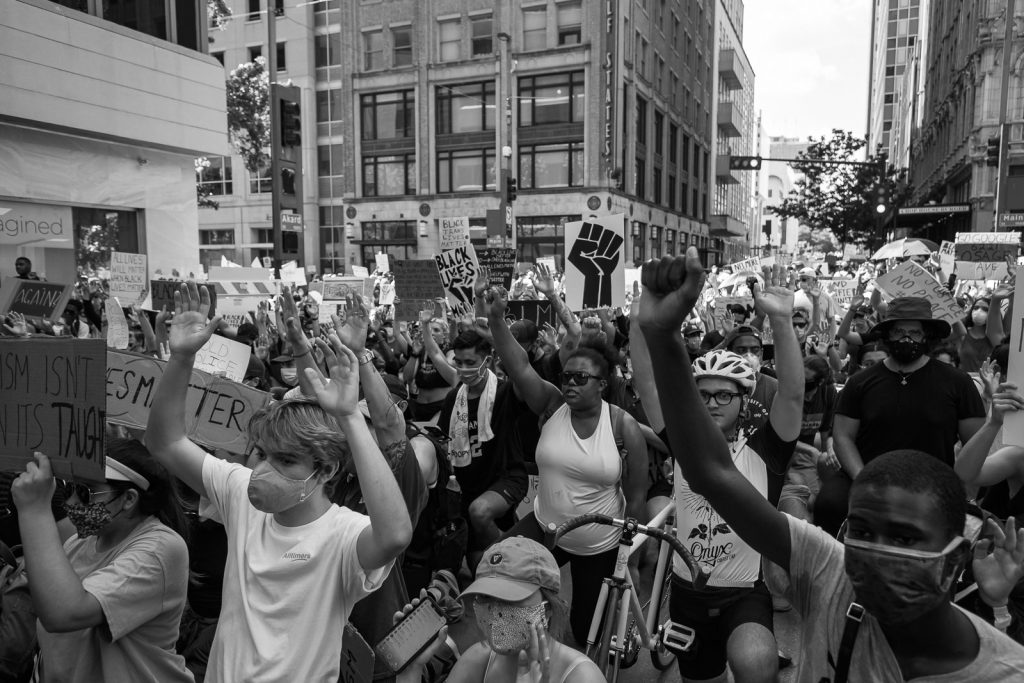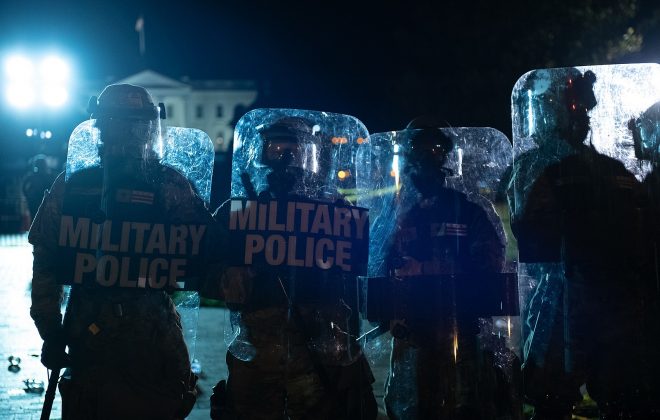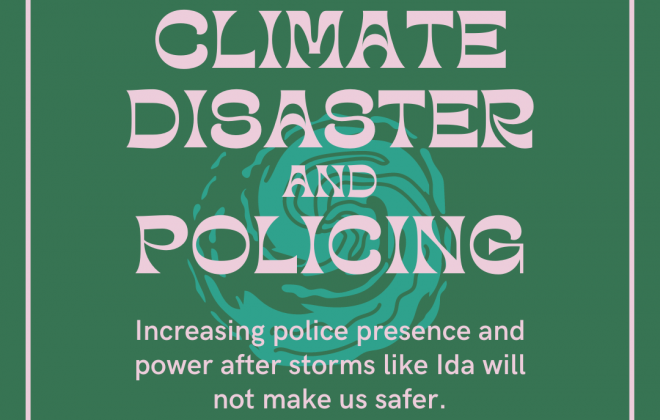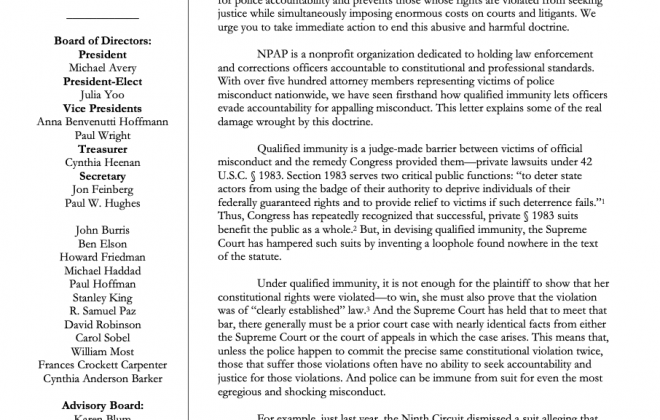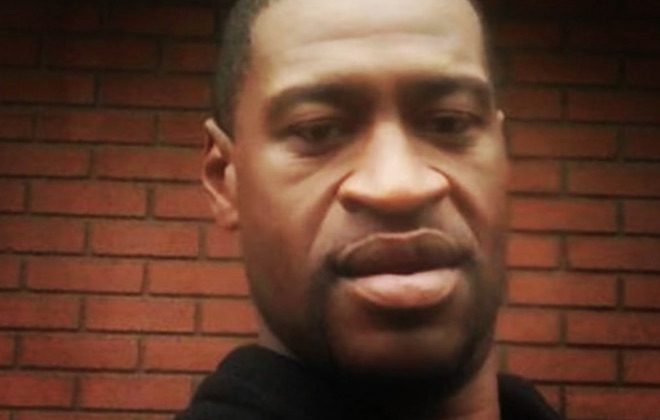We Cannot Keep Enabling Police Villainy
Written by NPAP Board Member David Gespass
Two decades ago, at a National Lawyers Guild convention, the National Police Accountability Project (NPAP) was formed with an initial goal of providing support, assistance and tools to lawyers, law students and legal workers suing police for misconduct. Only those who represent plaintiffs in cases claiming violation of constitutional rights by law enforcement officers may be members. Now several hundred strong, the organization and its members collectively have a deep understanding of, and unique perspective on, the issues that have been so starkly raised by the torture and murder of George Floyd and the deaths of so many others at the hands of law enforcement. Some issues, like qualified immunity (which is, in practice, virtually unqualified immunity) and the disproportionate victimization of people of color, have been publicized and discussed broadly. Others, which I would like to address here, have not been so well bruited.
With increasing frequency, police killings of unarmed African-Americans become matters of national concern and outrage. What we rarely learn of, however, are incidents of police violations of constitutional rights that do not end in the morgue. And yet for every death there are countless other incidents–beatings, tasings, arrests without probable cause, stops-and-frisks and harassment–that never make the news and often do not result in lawsuits. By analogy, 156 people and counting have been freed since 1973 from death rows across the country because they were proven innocent. These are not people who got off because of procedural errors or technicalities, but those who were, in fact, innocent. Capital cases receive infinitely greater scrutiny than other criminal matters; and for every death sentence meted out in the US, there are likely thousands of convictions for other crimes. Extrapolate from that, if you will, the staggering number of innocent people convicted of non-capital offenses, or of capital crimes who were not sentenced to death, whose convictions have not been investigated at all, much less with the vigor given to at least some death cases. Much the same goes for incidents of police misconduct: only the most egregious become matters of public discussion and outrage.
Members of NPAP routinely represent victims of police misconduct who were not killed. Someone may be in jail for more than a year waiting for trial and then released because police lied about the facts. They may be rendered disabled because of a beating. They may have had their door broken down and their house ransacked while they were handcuffed for several hours because police went to the wrong house. Such events are routine but rarely, if ever, receive notoriety. Perhaps worse, we turn down cases where a victim is harassed or “detained” for no good reason but not jailed or charged. The damages in such cases simply do not justify suing, because our courts do not recognize that a violation of one’s constitutional rights, without injury, is serious enough to warrant money awards. And since, for individuals, money is pretty much all you can get to compensate for your injury, there needs to be a pretty serious injury to be worth it to a plaintiff to endure the trying, and frequently traumatic, years of litigation.
Yet these are things that happen with disturbing regularity in poor, and particularly, but hardly exclusively, African-American, neighborhoods. Periodically, as we have seen after George Floyd’s death, an especially outrageous act leads to an outpouring of opposition and resistance. Whenever that happens, government officials call for calm, police unions demand that we wait until investigations are complete and others warn against violence. Then, as night follows day, as undesirable and unproductive and rare as random acts of violence by protesters may be, the news focuses on those acts. In an infinitesimal number of extreme cases, police officers are attacked and killed. In the vast majority, stores are looted or vandalized. Public figures then wring their hands, call for law and order and focus on the violations of law, overwhelmingly involving property damage, and not the years of terror that preceded them.
Decades ago, Tom Hayden was asked if he condoned acts of violence in opposition to the Vietnam War. His response was that it made no difference if he did or did not condone such acts: given the violence and brutality of the prosecution of the war by US troops, a violent response by some was inevitable. Similarly, when a community has been subjected to years of repressive and violent policing, while we cannot know which particular incident will ignite a response, sooner or later a response is inevitable and it will not always be confined to lawful, non-violent protests. Certainly, lawful protests predominate, but just as certainly some, including the president, will seize on random and isolated acts of lawlessness or violence to condemn all protests, and will ignore the conditions that led to such acts. With time, things return to some semblance of normalcy, a few reforms may be initiated and everything appears quiet. But so long as the fundamental conditions remain unchanged, the water will remain at 208 degrees: primed to boil over into another uprising when another unconscionable abuse occurs. Tinkering around the edges of police abuse without major changes makes violent responses, however isolated, inevitable. Band aids will not suffice to treat bullet wounds.
Finally, we should understand the role of language in perpetuating tolerance for intolerable law enforcement behavior. Police and their enablers have coined euphemisms, almost universally accepted by the press and public officials, that minimize and obscure their unacceptable behavior. Perhaps, with George Floyd’s murder, that is changing. Time will tell. But cop-speak for what happened to, for example, Breonna Taylor is that it was a “police-involved shooting.” What that term means, in English, is that one or more police officers shot someone, either killing the person or causing grievous injury. They were not merely involved, they were the perpetrators, whether or not the shooting was justified. When cops recount it, the description is “I discharged my weapon” as opposed to “I shot the guy.”
Other terms also seek to mask what is really happening. When you say you were “detained,” that ordinarily suggests you were stuck in traffic and late to a meeting. But when you are “detained” by an officer you are not free to leave, and you may be handcuffed for half an hour or more. Or, for immigrant children, it means being separated from your parents and held in cages. If you are stopped on a highway and refuse to allow police to search your car, you may be detained until they can get a dog to sniff around and alert them to the presence of drugs in your vehicle in hopes that they will then be able to search based on the probable cause they didn’t have before. You might, as we have seen in Portland in these past days, be “detained” in a “holding cell” for several hours, which, translated, means that you might be arrested and stuck in a cell for some time without probable cause.
Or perhaps a “subject,” after being pulled over on a traffic stop, made a “furtive move,” which could be anything from reaching into the glove compartment to get proof of insurance to simply taking one’s hands off the steering wheel. For Amadou Diallo, it was standing by the door to his apartment and reaching into his pocket for ID, which led to the police-involved shooting that left him dead, with nineteen bullets in his body and the four police officers who discharged their weapons acquitted of his murder. And yet the violence that is condemned is that of the long-suffering victims of police violence who feel they can take no more and choose to respond in kind. Indeed, cop-speak insidiously chooses to categorize every uprising against police brutality as a “riot.”
Police are given enormous power in our society. They have clubs (“batons” in cop-speak, evoking images of twirlers in a marching band), tasers, handcuffs and guns. They have the authority to take away your freedom and are given the benefit of every possible doubt when challenged. We look to the day when the NPAP is no longer necessary, but that day will not come so long as we absolve the vast bulk of officers from accountability for their most onerous acts.



